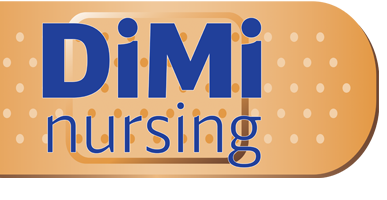At DiMi Nursing we work with our clients to evaluate the level of care that is necessary to improve their quality of life or help them regain their independence. We offer a variety of services including but not limited to the following:
Alzheimer’s and Dementia Care
Providing Care for a loved one suffering from Alzheimer’s disease or Dementia is stressful, exhausting and overwhelming. Providing care for your loved one is difficult as their abilities and needs change with the progression of the disease.
Click here for more info.
Arthritis
Arthritis is a word used to describe more than 100 different diseases and conditions affecting joints, the tissues that surround joints, and other connective tissue. The locations, types, and severity of symptoms can vary depending on the specific type of arthritis.
Click here for more info.
Cancer Care
Advances in cancer treatments and rising hospital costs have led to shorter hospital stays with less recovery time. This results in sicker people returning home to recover. Home health care professionals are increasingly important in caring for and maintaining the quality of life for these individuals.
Click here for more info.
Cosmetic Surgery
Cosmetic plastic surgery procedures reshape the normal structures of the body in order to improve appearance and self-esteem. DiMi caregivers can assist clients with daily activities that may be difficult to perform during the post-surgical recovery period.
Click here for more info.
Diabetes / Diabetic Neuropathy
More than 25 million Americans are diagnosed with diabetes. About half of them have some form of nerve damage from the disease. Diabetic Neuropathy is a type of nerve damage that can occur if you have Diabetes. The goal of treating diabetic neuropathy is preventing the disease from worsening and symptom reduction done by strict control and monitoring of blood sugar levels.
Click here for more info.
Foot / Ankle Surgery
The type of foot or ankle surgery performed determines the length and kind of aftercare required to assure that your recovery from surgery is rapid and uneventful. Your surgeon will also determine if and when you can bear weight on your foot after the operation.
Click here for more info.
Hip Replacement Surgery
After Hip Replacement Surgery your Orthopedic Surgeon will suggest a Rehabilitation Facility or a Medicare Certified Home Health Agency for Physical and Occupational Therapy. Recovery time can vary in length for each individual but is usually around 6 weeks.
Click here for more info.
Knee Replacement Surgery
After Knee Replacement Surgery your Orthopedic Surgeon will suggest a Rehabilitation Facility or a Medicare Certified Home Health Agency for Physical and Occupational Therapy to insure the best surgical outcomes. Recovery time can vary for each individual but is usually around 6 weeks.
Click here for more info.
Lymphedema
Lymphedema is caused by a blockage in your Lymphatic System. The blockage prevents lymph fluid from draining well, and as fluid builds up, the swelling continues. There is no cure for Lymphedema but it can be controlled if consistent care is given to the affected limb.
Click here for more info.
Open Heart Surgery
After Open Heart Surgery your surgeon will suggest a Rehabilitation Facility or Medicare Certified Home Health Agency for physical and occupational therapy to insure the best surgical outcome. Recovery time can vary in length for each individual.
Click here for more info.
Parkinson’s Disease
Parkinson’s disease is a progressive, neurodegenerative disorder that affects movement, muscle control, and balance as well as numerous other functions. Parkinson’s progresses slowly in most people and it is not uncommon for individuals diagnosed with PD to live 20 years or more from the time of diagnosis.
Click here for more info.
Shoulder Replacement Surgery
After Shoulder Replacement Surgery your surgeon will usually suggest a Medicare Certified Home Health Agency to provide physical and occupational therapy to insure the best surgical outcomes. In the initial post-operative period many patients experience limited range of motion of their affected limb making it difficult to perform activities of daily living like washing or styling their hair, brushing teeth, getting up from a chair or doing the laundry.
Click here for more info.
Spinal Stenosis / Spinal Surgery
Spinal stenosis is a narrowing of the open spaces within the spine, which can put pressure on the spinal cord and the nerves that travel through the spine. Spinal stenosis occurs most often in the neck and lower back and can cause pain, numbness, muscle weakness, and problems with bladder or bowel function.
Click here for more info.
Stroke Patients
Strokes affect more than 700,000 individuals annually in the United States. More than 4 million people have survived a stroke, affecting in some manner four out of five families. If you or your loved one has been discharged from the hospital after a stroke, your doctor most likely recommended having physical, speech and occupational therapy dependent on the severity of your stroke.
Click here for more info.
